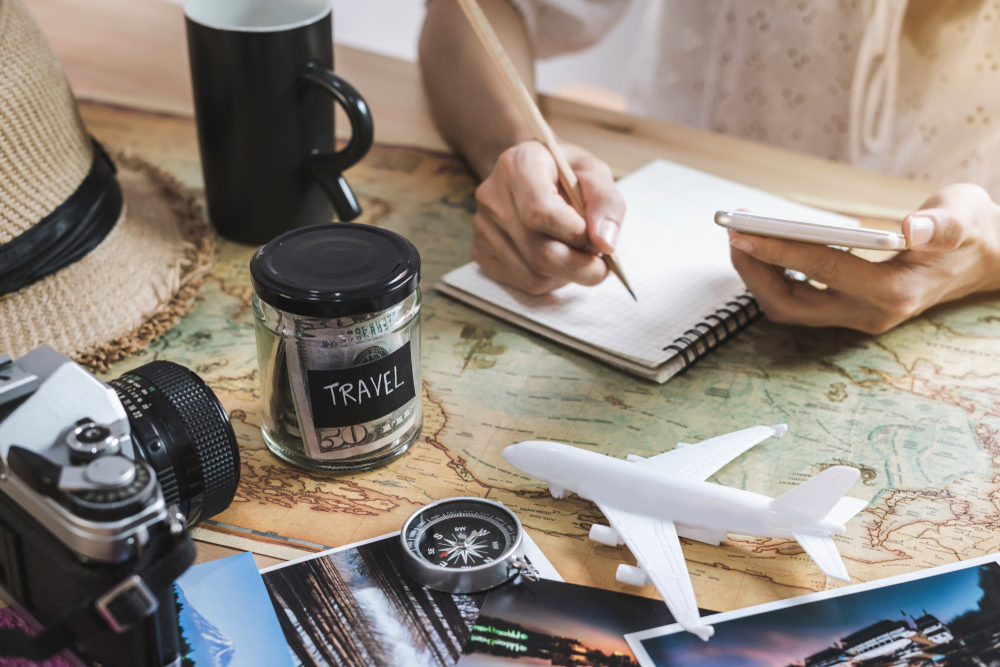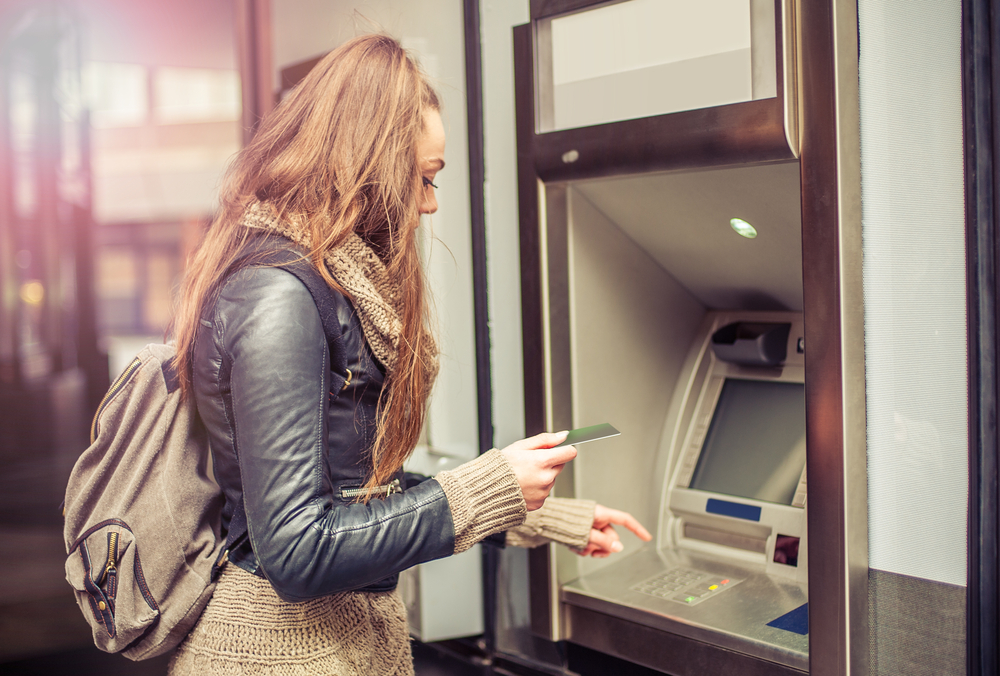Studying Down Under? Here’s How to Survive in Australia as a Student
If you’ll be studying abroad in Australia, then you’re in for the absolute time of your life! Each year, hundreds of thousands of international students enroll in colleges and universities to experience the magic that is uniquely Australia.
While studying in Australia is loads of fun, there are tons of things to consider before and while you’re abroad. This includes things like how to budget your money, where you’ll live, getting to know your new surroundings, how to open a bank account, and other essential life tips that make studying in a foreign country much easier.
If you’re heading down under for Uni, read on for our top tips on how to survive Australia as a student.
Budget Your Money

Sure, budgeting money might not sound like the most fun thing in the world to have to do, but it’s an important part of the travel abroad experience.
If you budget your money correctly before leaving your native country, then you’ll have a good idea of how far your dollars will stretch while away in Australia.
Take into consideration expenses such as:
- Visa fees
- Health insurance
- Tuition
- Books
- Student accommodation
- Transportation
- Food
- Activities
- Travel.
Think about how much you’d like to devote to each category.
For reference, the average fee for international undergrad students studying abroad in Australia is approximately AU$30,840 (that’s roughly $22,000 USD). That means it’s vital that you’re fully prepared to take on these expenses to survive in Australia. As a student, it can be tough to come to terms with these expenses, so exploring scholarships, working summer jobs in your home country before leaving for Australia, and monitoring your spending can help you stay on track.
If you’re in need of additional financial advice, check out our money saving tips for international students for more ideas to save some cash.
Keep Your Health in Check with International Health Insurance

As part of your official visa application, all international students in Australia must secure overseas student health coverage (OSHC). The plan must cover you for the duration of your studies, and students may choose from five different OSHC insurers. If you’re not sure which to select, feel free to discuss this with your home or Australian university and they can point you in the right direction.
OSHC covers basic healthcare such as the cost of seeing a doctor and some pharmaceutical drugs. However, it may not cover everything you need (especially if you have a complex health condition). Consider purchasing a private insurance plan while you’re abroad to make sure your health needs are fully covered.
Find the Right Student Accommodation

The Land Down Under is well-known for its student accommodation in AU. You have heaps of options when it comes to how you’d like to live out your study abroad experience, whether it be in a private, furnished studio, or with roomies in a shared, furnished apartment – it’s up to you!
As the most popular choice of international students, Sydney is home to a dozen universities, so there’s no lack of fabulous student housing in Sydney. But there’s also incredible student accommodation in Brisbane and student accommodation in Melbourne – two other great Australian cities, renowned for their top Unis.
 Wherever you choose to study abroad, let Unilodgers help you find the perfect student apartment. Not only are our services 100% free of charge to you, but we also broker the lowest prices, provide you with instant and secure online booking, and assign you to a Student Support Specialist who will be there for you throughout your entire Unilodgers journey.
Wherever you choose to study abroad, let Unilodgers help you find the perfect student apartment. Not only are our services 100% free of charge to you, but we also broker the lowest prices, provide you with instant and secure online booking, and assign you to a Student Support Specialist who will be there for you throughout your entire Unilodgers journey.
Plus, if you know you want to live with roommates, but won’t be traveling with friends, then our team can help you find the perfect flatmate with our Roommate Matching Program. (P.S. We might even be able to give you some advice on how to deal with a messy roommate).
Open a Bank Account

Opening a bank account in Australia is easy. Several Australian banks will process student applications online and allow you to transfer funds before moving.
Students can choose to bank with one of the Big Four banks in Australia or a smaller, regional bank, depending on preference.
Here are the types of bank accounts international students can open:
Everyday Transaction Account
If you want to know how to survive Australia as a student and manage your money well, then you’ll need one of these bank accounts! With an everyday transaction account, you’ll be provided with a debit card to make purchases at stores, pay bills online, and deposit or withdraw money from banks or ATMs.
Everyday Transaction Account for Students
This one sounds just like the option above, and it is in most cases, but it’ll help you save a little bit of money right from the start by not charging you a monthly account fee since you’re a student.
Traditional Savings Account
If you’re able to save while abroad, then you may want to link a savings account to your everyday transaction account. Try to find a bank that offers high-interest savings accounts to help you grow your money while abroad in Australia.
Immerse Yourself in the Culture

One of the best tips for international students in Australia that we can offer is to fully immerse yourself in the culture. Australia is a melting pot of cultures and traditions, so making friends with locals can open your eyes to the beauty of the Australian population.
Locals can also give you insider tips on the best restaurants, sights to see, nightlife, and activities. Plus, Australians are notoriously friendly, so don’t be afraid to take the first step and say “g’day” next time you’re around a group of Aussies (one of our five tips for freshman).
Learn How to Use Public Transportation

It’s highly likely that you won’t have a car while studying abroad in Australia, so how will you get around town? Mastering public transportation is one of the keys to surviving Australia as a student.
Australia currently has numerous modes of transportation available depending on the city you’re in—including buses, trains, ferries, and the light rail. Once you arrive in your new city, get a feel for what fits best. Can you take the bus to and from school or to the CBD or do you prefer another mode? Either way, public transportation is a great way to familiarize yourself with your newfound surroundings.
Study Quickly and Efficiently

Sure, you’re studying abroad to further your academic goals, but you shouldn’t have your nose in a book the entire time you’re abroad. Establishing a strong study routine will help you absorb all the knowledge you need quickly and efficiently.
Try handwriting notes during lectures to synthesize the information, then color-code them in a uniform style that you understand and study from there. Or, divide and conquer with a study buddy and take turns testing each other on the content.
There are tons of ways that you can study so you don’t find yourself spending all your precious time abroad in the library, you just need to find what works best for you. Read our complete guide to smart studying for more ideas on how to study smarter, not harder.
Plan Weekend Getaways

Speaking of not spending your entire study abroad experience in the classroom, have you given any thought to where you’d like to go on the weekends? Australia is full of beautiful and interesting places to travel to during your off days from Uni.
A simple Google search can open you up to the possibilities that are just a few hours away. Since Australia is known for its incredible outdoors, you may want to spend your weekends exploring beaches, cities, or try your luck in the Outback and see one of its many National Parks. A great way to travel on a budget is to rent a car with a group of friends or book cheap, last-minute domestic flights.
Stay Connected to Home

Depending on where your home country is, your cell phone may or may not work in Australia. Be sure to do your research when it comes to international calls, roaming, and SIM card usage, as these could incur additional costs to your monthly phone bill.
If you don’t want to risk the high cost using your cell phone, then you can always utilize Skype, FaceTime, and iMessage on your computer or iPhone, or opt for cheap prepaid phone for calls exclusively inside Australia.
Whichever way you choose to stay in touch with home, just be sure to keep mom and dad in the loop so they don’t worry about you while you’re away!
Surviving Australia as a Student Is Easy with the Right Tips
Now that you have all the inside tips for international students in Australia, are there any you’d like to add to the list?
Don’t forget to read more about what it’s like to study in AU by checking out our complete guide to studying abroad in Australia for all the ins and outs of Aussie life.
Unilodgers is the world’s leading platform to book student accommodations and serves over 2 million students from over 195 countries every year. We provide students exclusive offers on student housing options and make it easy to book the accommodation that’s the best fit for you.



